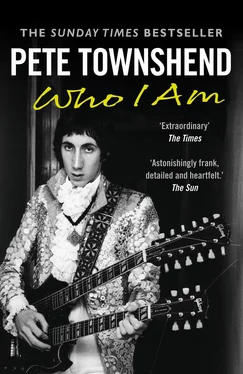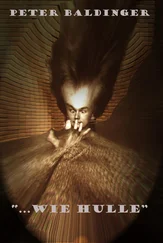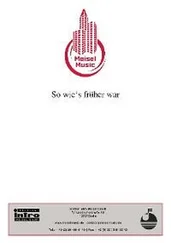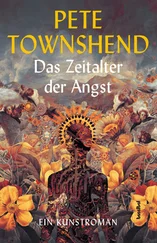***
I remember going to a lunch gathering with Barry and Sue Miles. Barry was a founder of the Indica Bookshop, a radical establishment selling books and magazines relating to everything psychedelic and revolutionary. I met Paul McCartney properly there, with his girlfriend, actress Jane Asher. Paul had helped fund Indica, and he seemed much more politically savvy than any other musician I’d come across. He was clear-thinking and smart, as well as charming and essentially kind. Jane was well-bred, polite and astonishingly pretty; behind the demure exterior simmered a strong personality, making her the equal of her famous beau.
George Harrison arrived a little later with his girlfriend, Pattie Boyd. Pattie was immediately open and friendly. She had the kind of face you could only see in dreams, animated by a transparent eagerness to be liked. Karen was with me, and for the first time I felt part of the new London pop-music elite. Karen, strangely, seemed more comfortable than I was.
I saw Paul again at the Bag O’Nails in Soho, where Jimi Hendrix was making a celebratory return. Mick Jagger came for a while and then left, unwisely leaving Marianne Faithfull, his girlfriend at the time, behind. Jimi sidled up to her after his mind-bending performance, and it became clear as the two of them danced together that Marianne had the shaman’s stars in her eyes. When Mick returned to take Marianne out to a car he’d arranged, he must have wondered what the sniggering was about. In the end, Jimi himself broke the tension by taking Marianne’s hand, kissing it, and excusing himself to walk over to Paul and me. Mal Evans, The Beatles’ lovable roadie-cum-aide-de-camp, turned to me and breathed a big, ironic Liverpudlian sigh. ‘That’s called exchanging business cards, Pete.’
***
The Who had several roadies from Liverpool at this time, who seemed to operate on the assumption that there was a moral gulf between London and their home city. One of them took five or six of my broken Rickenbacker guitars home for his father to repair, and I never saw them again. The other developed a compulsion for stealing hotel furniture, emptying an entire room once while the band was still on stage around the corner. He even took the wardrobes and the bed, all of which were added to our hotel bill. When these thefts were brought to their attention they made us feel as if we were making a fuss over nothing.
By contrast, Neville Chester, our first official road manager, was excellent and hard working. We were difficult to please in the best of circumstances, and the equipment smashing meant that a lot of his free time was being spent chasing up repairs. When he became associated with Robert Stigwood and began to appear wearing rather posh suits, we feared Stiggy had made him an offer he couldn’t refuse. In any event, we lost him as road manager.
We then found the amazing Bob Pridden, who is still our chief sound engineer today. Bob’s first important show should have been at Monterey, but for some reason Kit and Chris felt we should take Neville instead, for one last job with us. I haven’t seen him since, but he played a vital part in our early career, and should receive a massive royalty share for everything he did.
That should flush him out.
The Who headed back to the States in June, flying out on the 13th, the day after Karen’s birthday, to play at Ann Arbor, Michigan, our first show outside New York. We then moved on to play four shows in two days at Bill Graham’s Fillmore in San Francisco. Cannonball Adderley was on the bill with his brother Nat, and I couldn’t wait to tell them how much I loved ‘Tengo Tango’.
Bill Graham told us firmly we had to play two one-hour sets with no repeats. We had rarely played more than fifty minutes, and most of that was filled by me, making my guitar howl. Suddenly I started to see the sense of Eric Clapton’s extended soloing. We rehearsed and brought in new material, and the attentiveness of the Fillmore audience and excellence of the PA system more than made up for the extra work. It made us feel for the first time that we were playing real music.
The atmosphere in Haight-Ashbury was peace and love, the streets full of young people tripping. The ones to watch out for were the many Vietnam veterans, attracted by the promise of easy sex. They were often badly damaged by their wartime experiences, and despite the mellowing drugs they took they could be pretty hostile. One man grabbed Karen’s arm as he passed and wouldn’t release it, gazing at her like he’d found his Holy Mother. I caught his attention by knocking his arm away; for a second his face hardened, then he broke into a grin and walked away.
It was at the Monterey Pop Festival, on 18 June 1967, that Jimi and I met our battleground. Essentially it was a debate about who was on first, but not quite for the reason one would assume. When Derek Taylor, The Beatles’ former publicist who was acting for the festival, told me we were to appear immediately after Jimi, two thoughts ran through my head. The first was that it seemed wrong that we should appear higher on the bill. Musically speaking, Jimi had quickly surpassed The Who; even then he was far more significant artistically than I felt we would ever be.
I also worried that if Jimi went on before us he might smash his guitar, or set it on fire, or pull off some other stunt that would leave our band looking pathetic. We didn’t even have our Sound City and Marshall stacks because our managers had persuaded us to travel light and cheap. Jimi had imported his, and I knew his sound would be superior.
Derek Taylor suggested I speak to Jimi. I tried, but he was already high. He wouldn’t take the question of who would perform first seriously, flamming around on his guitar instead. Although I don’t remember being angry, and I’m certain I wouldn’t have been disrespectful, I knew I had to press Jimi to engage me. At this point John Phillips of The Mamas and Papas intervened, thinking we weren’t being ‘peace and love’ enough. He suggested tossing a coin, and whoever lost the toss would go on last. Jimi lost.
After being introduced by Eric Burdon, The Who blasted through a clumsy set, ending by smashing our gear. The sound technicians tried to intervene as we went into our finale, which only added to the sense of disarray. The crowd cheered, but many seemed a bit bewildered. Ravi Shankar was apparently very upset to see me break my guitar. I towelled myself off and ran out front to catch Jimi’s set.
It was strange seeing Jimi in a big music festival setting after only having seen him in small London clubs. Many of Jimi’s stage moves were hard to read from where I was sitting. In the huge space Jimi’s sound wasn’t so great after all, and I started to think maybe The Who wouldn’t compare too badly. Then he turned up his guitar and really started to let loose: Jimi the magician had made his appearance. What was so great about him was that no matter how much gear he smashed, Jimi never looked angry; he always smiled beatifically, which made everything he did seem OK.
The crowd, softened up by The Who’s antics, responded heartily this time. When Jimi set his guitar on fire, Mama Cass, who was sitting next to me, turned and said, ‘Hey, destroying guitars is your thing!’
I shouted back over the cheering, ‘It used to be. It belongs to Jimi now.’ And I meant every word.
When Karen, Keith Altham (our publicist) and I all gathered at San Francisco airport to fly home, it turned out that Keith had also been working with Jimi, who was allegedly also paying his fees. I made it clear to Keith that I felt he had been duplicitous by not telling us he would be acting for both The Who and Jimi at Monterey. He denied any wrongdoing, and defends himself to this day.
Jimi got wind of our little spat in the airport lobby and started giving me the evil eye. I walked over to him and explained that there was no personal issue involved. He just rolled his head around – he seemed pretty high. Wanting to keep the peace, I said I had watched his performance and loved it, and when we got home would he let me have a piece of the guitar he had broken? He leaned back and looked at me sarcastically: ‘What? And do you want me to autograph it for you?’
Читать дальше












